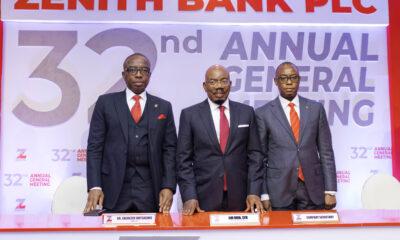- Ghanaian consumer confidence declines by four points
- Nigerians consumer confidence also subdued
Lagos, 11 December 2019 – Ghana’s latest Nielsen Consumer Confidence Index (CCI) for the third quarter of 2019 shows a slight drop to 114 from the previous quarter’s buoyant 118, while Nigeria’s CCI has also decreased by five points to 122. These two sets of results present a fairly stable, albeit a slightly less positive picture of consumer sentiment across West Africa compared to the previous quarter.
Looking at Ghana’s overall performance, Nielsen Market Lead for West Africa, Yannick Nkembe comments; “The initial optimism experienced at the beginning of the year is waning in Ghana owing to the concerns around the economy. Though inflation levels dropped, these have not shown a meaningful impact at the ground level and Ghanaians continue to feel the pressure. Consumers have become cautious of spending as they are not certain of future prospects.”
This more subdued outlook is reflected by Ghanaian consumers’ curtailed view of their job prospects, with a substantial 12 point decrease to 51% saying job prospects will be excellent or good in the next 12 months. In terms of the state of their personal finances over the next 12 months, 72% say they are excellent or good, down from 74% in the last quarter. The number of Ghanaian consumers who feel now is a good or excellent time to purchase the things they need or want, has also seen an inconsequential drop quarter on quarter, from 46% to 45%.
Looking at whether Ghanaians have spare cash, only 42% say yes, down a substantial 10 points from the previous quarter. Once they meet their essential living expenses, the highest number of consumers (82%) still say they will put their spare cash into savings, followed by 66% on home improvements/decorating and 59% who will invest in stocks and mutual funds.
When looking at the factors that are having a negative impact on Ghanaians outlook, the top concerns over the next six months are increasing food prices (26%) followed by work/life balance at 22%, the economy and tolerance towards different religions, both at 18%, and job security coming in fourth at 16%.
In light of their outlook, more than three quarters (72%) of Ghanaians have changed their spending to save on household expenses compared to the same time in the previous year. The top three actions they have taken to save money are delaying the replacement of major household items (55%), looking for better deals on loans/insurance/credit cards (54%) and spending less on new clothes (53%).
A drop in sentiment in Nigeria
The third quarter also saw a drop in sentiment in Nigeria with consumer confidence decreasing by five points to 122, albeit it is still higher than the same quarter last year (118).
Commenting on the recent decline in consumer sentiment, Nielsen MD for Nigeria, Ged Nooy says; “Nigerians are experiencing a subdued confidence level considering that inflation has started to rise again and the proposed VAT increase bill, which is making people cautious. Furthermore, the rising sovereign debt and the anxiety around further Naira devaluation, continued to impact consumer sentiment in Nigeria in the third quarter.”
Looking at the consumer picture, Nigerians immediate-spending intentions has shown a large decline; with only 41% of consumers (versus 54% in the previous quarter) saying now is a good or excellent time to purchase what they want or need. Their perception around job prospects has also declined, with 55% viewing them as excellent or good – a five point drop from the previous quarter.
In addition, sentiment around the state of personal finances has also shown a decline, with 76% Nigerians agreeing their state of personal finances will be excellent or good over the next year, a six point drop from the previous quarter.
Looking at whether Nigerians have spare cash to spend, 47% said yes, versus 51% in the previous quarter. In terms of their spending priorities once they meet their essential living expenses, 76% would invest in home improvements/decorating, 72% would put their spare cash into savings and 62% say they will invest in shares/mutual funds.
Looking at the top concerns for Nigerians over the next six months, work/life balance tops the list with 28% – a one point increase compared to the previous quarter. This is followed by concerns around increasing food prices at 22% (the same as Q2’19) and tolerance towards different religions (19%) superseding the economy, which is now at 16% – a four point decrease compared to the previous quarter.
Elaborating on these results, Nooy says; “Nigerian consumer sentiment dropped this quarter, however it is still quite high compared to the cut off of 100, where anything above 100 reflects a positive consumer confidence. The key for marketers and retailers is to understand these fluctuating consumer sentiments and quickly adapt to the consumer’s needs.”

 Naira4 weeks ago
Naira4 weeks ago
 News4 weeks ago
News4 weeks ago
 Naira4 weeks ago
Naira4 weeks ago
 Jobs4 weeks ago
Jobs4 weeks ago
 Travel3 weeks ago
Travel3 weeks ago
 Naira3 weeks ago
Naira3 weeks ago
 Naira3 weeks ago
Naira3 weeks ago
 Investment4 weeks ago
Investment4 weeks ago






























